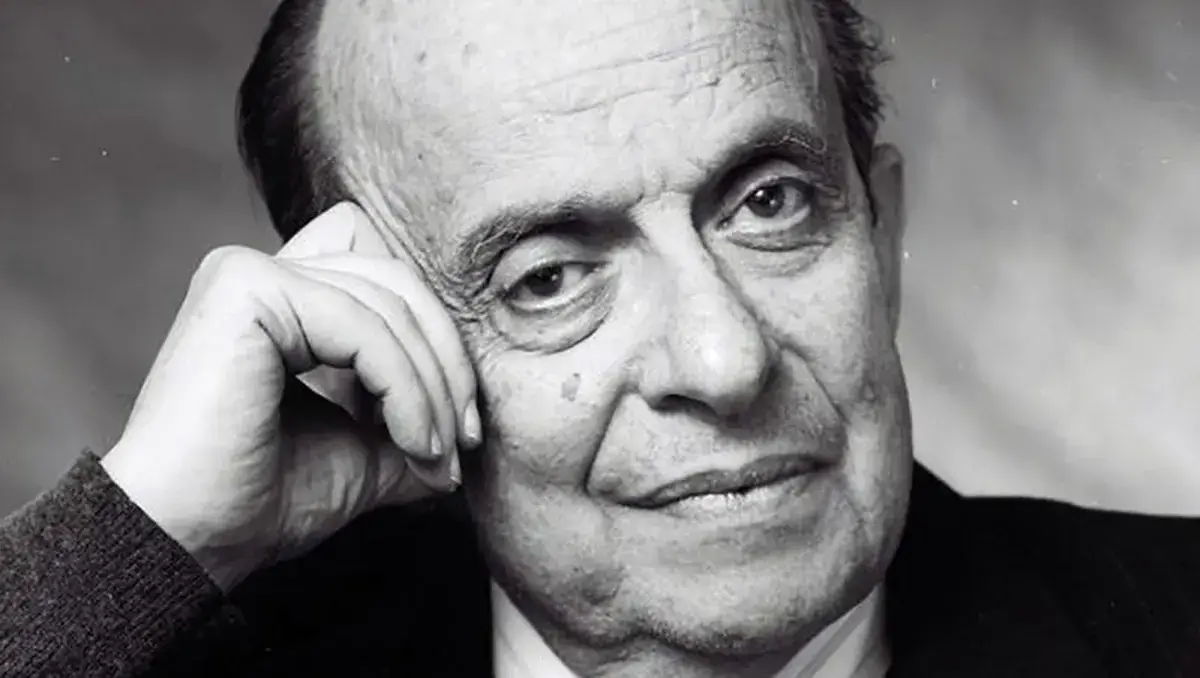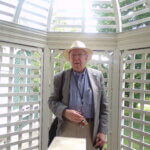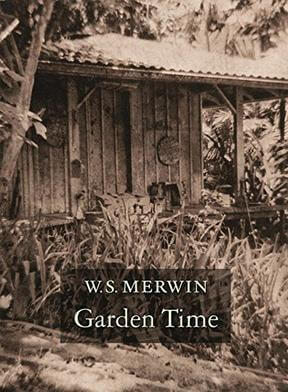
Essay
Untranslatable Song: The Vertical Poetry of Roberto Juarroz
by Wally Swist
Ir hacia arriba no es nada mas
que un poco mas corto o un poco
mas largo que ir hacia abajo
Going up is nothing more
that a little shorter or a little
longer than going down
The allusion to “Fragment 108” of Heraclitus is significant to the poetry of Roberto Juarroz. It exhibits his predilection toward a philosophical and lyrical tautology in his poetry but also the mysterious something, or ontological underpinning, Juarroz either aspires to or characteristically drills down toward. His poetical raison d’etre is best explained, perhaps, in a letter to W. S. Merwin, dated 26 August 1986.
My father died in my arms, of lung cancer, and I breathed death.
I turned away from the church and its splendors, but I was tinged
with something approaching mysticism, which in that non-
confessional, primal, and open sense of which Novalis was speaking
when he described poetry as the original religion of humanity.
For a poet who is also considered to be an aphorist, and who was a friend and colleague of Antonio Porchia, a master of the form, the poetry of Juarroz is more substantive than what is an oversimplification of his style and form. The essence of aphorism may be apparent in the work of Juarroz but he is much similar in nature to the work of Polish poet Tadeusz Rosewicz, or as Julio Cortazar suggested to Mallarme, due to his “use of absence.” Perhaps even Emily Dickinson’s notion of poetry being “written at a slant” would also afford Juarroz a certain verisimilitude in describing the kind of poetry he composed.
His own words, again, may be the most felicitous in who Juarroz is and was as a poet, again from the letter quoted above.
I know that I have written something relatively different. I am not
Interested in literary success nor in being rich, nor in the socio-
literary farce. I want something open and clear. I keep a few great
admirations (Porchia, for example, and Rilke and Huidobro). I have
always had a number of close friends; man matters deeply to me;
I am a little startled by this growing recognition in recent years, and
the voices that reach me from many directions; but I have a profound
faith in something that I can only intimate in my poems, and I would like to live a little longer.
Roberto Juarroz was born in 1925 in Coronel Dorrego, near Buenos Aires, in Argentina. He died in his seventieth year in the early spring of 1995. He developed a passion for poetry early on and published his first iteration of Vertical Poesies in 1958, of which not unlike Antonio Porchia with his Voces, would continue to publish poems without titles in volumes that would be issued by the same name, Vertical Poetry, only differing by their successive numbers identifying each book’s new work.
Octavio Paz wrote of the poetry of Juarroz that he saw it as “surprising verbal crystallisation; language reduced to a bead of light.” In returning to the notion of a philosophical arc informing his poetry, Andreas Dorschel praises Juarroz for writing “philosophical poetry,” which he concludes is “transparent and dark at the same time, marked by “its lightness and metaphysical wit.”
Perhaps this is best displayed in one of my own favorite poems written by Roberto Juarroz, one dedicated to his wife, Laura Cerrato, who would provide the impetus to publish the fifteenth iteration of Vertical Poetry after the death of her husband, which appeared in 1997. Juarroz referred to Laura as his “irreplaceable companion.”
Vertical Poetry, IV,7, 1969
Si conocieram0s el punto
donde va a romperse algo,
donde se cortara el hilo do los besos,
donde una mirada dejara de encontrarse con otra mirada,
donde el corazon saltara hacia otro sitio,
podriamos poner otro punto sobre ese punto
o por lo menos acompanarlo al romperse.
Si conocieramos el punto
donde algo va a fundirse con algo,
donde el desierto se encontrara con la lluvia,
donde el abrazo se tocara con la vida,
donde mi muerte se aproximara a la tuya,
podriamos desenvolver ese punto como una serpentina
o por lo menos cantarlo hasta morirnos.
Si concieramos el punto
donde algo sera siempre ese algo,
donde el hueso no olivdara a la carne,
donde la fuente es madre de otra fuente,
donde el pasado dejar solo ese punto y borrar todos los otros
o guardarlo por lo menos en un lugar mas seguro.
(A Laura)
If we knew the point
where something is going to break,
where the thread of kisses will be cut,
where one look would stop meeting another look,
where the heart will jump to another place,
we could put another point on that point.
or at least accompany it when it breaks.
If we knew the point
where something is going to merge with something,
where the desert met the rain, where the hug touched life,
where my death would approach yours,
we could unwrap that song like a streamer
or at least sing it until we die.
If we knew the point
where something will always be that something,
where the bone will not forget the flesh,
where the source is the mother of another source,
where the past leaves only that point and erases all the others
or store it at least in a safer place.
(To Laura)
—Translation, Wally Swist
I first read Roberto Juarroz in 1977 when I was a cataloguer in an all-poetry bookstore in New Haven, Connecticut. The volume was just entitled Vertical Poetry, a bilingual edition translated by W. S. Merwin and published by the inimitable Kayak Books. I carried that book around with me on long walks through the city and through Yale campus, often reciting verses quietly to myself that I learned by heart. I also would open readings I gave then in various lofts with any number of my favorite translations from that book. The music of the poems of Roberto Juarroz, which is not much discussed at all, penetrated my inner ear and remained there. The best I can describe it is a forefront of violins against a backdrop of sonic harmonies: a kind of infinite music or maybe even a music of infinity, but one that is humble and nourishing concomitantly.
Librarian, university professor, and poet, Roberto Juarroz is a name not necessarily known in many literary contexts and conversations, but neither is humor or transparency for that matter, since there are elements of humor, a sophisticated kind, and many layers of transparencies in the poetry of Juarroz. Juarroz even suggests, perhaps assuming his role as professor, which he held at the University of Buenos Aires, that maybe the best poem was unwritten, and in doing so this could be the beginning of understanding the source from which all great writing not only begins but whence it continues to flourish.
Vertical Poetry, VIII, 1984
Hay que empezar a abandonar cada tanto la escritura
y aprender a convivir con la pagina en blanco,
con su llanura desmasiado lisa,
con su horizonte demansiado abierto.
Hay que dejar en suspenso nuestras figuraciones
para aproximarnos a nuestras transfiguraciones
y dialogar con ellas en el extremo del blanco,
sin tener siquiera la letra como testigo.
—Roberto Juarroz
You have to start abandoning writing from time to time
and learn to live with the blank page,
with its too smooth plainness,
with its horizon too open.
We must leave our imaginations in suspense
to approach our transfigurations
and dialogue with them at the end of the target,
without even having the handwriting as a witness.
—Translation, Wally Swist
The reference made by Julio Cortazar to the poetry of Roberto Juarroz is quite apt regarding Juarroz’s penchant for representing “absences;” or what we experience when we exact true presence in our lives, as in deep meditation, and most certainly in the following poem, since when I attempt to describe the music in the poetry of Roberto Juarroz as a forefront of violins and a background of lyric harmonies, undeniably, it is his “untranslatable song.”
Vertical Poetry, 7.1, 1982
Usar la propia mano como almohada.
El cielo lo hace con sus nubes,
la tierra con sus terrones
y el arbol que cae
con su propio follaje.
Solo asi puede escucharse
la cancion sin distancia,
la cancion que no entra en el oido
porque esta en el oido,
la unica cancion que no se repite.
Todo hombre necesita
una cancion intraducible.
—Roberto Juarroz
Use your own hand as a pillow.
Sky does it with its clouds,
earth with its clods
and the tree that falls
with its own foliage.
Only then can the song
without distance be heard,
the song that never enters the ear
because it’s already in the ear,
the only song that is not repeated.
All people need
an untranslatable song.
—Translation, Wally Swist
About the Author
 Wally Swist’s books include Huang Po and the Dimensions of Love (Southern Illinois University Press, 2012), selected by Yusef Komunyakaa for the 2011 Crab Orchard Open Poetry Competition, and A Bird Who Seems to Know Me: Poems Regarding Birds and Nature, winner of the 2018 Ex Ophidia Poetry Prize. Recent essays, poems, and translations have appeared in Asymptote (Taiwan), Chicago Quarterly Review, Commonweal, The Comstock Review, New World Writing, Pensive: A Journal of Global Spirituality & the Arts, Today’s American Catholic, and Poetry London. Shanti Arts published his translation of L’Allegria, Giuseppe Ungaretti’s first iconic book, in August 2023.
Wally Swist’s books include Huang Po and the Dimensions of Love (Southern Illinois University Press, 2012), selected by Yusef Komunyakaa for the 2011 Crab Orchard Open Poetry Competition, and A Bird Who Seems to Know Me: Poems Regarding Birds and Nature, winner of the 2018 Ex Ophidia Poetry Prize. Recent essays, poems, and translations have appeared in Asymptote (Taiwan), Chicago Quarterly Review, Commonweal, The Comstock Review, New World Writing, Pensive: A Journal of Global Spirituality & the Arts, Today’s American Catholic, and Poetry London. Shanti Arts published his translation of L’Allegria, Giuseppe Ungaretti’s first iconic book, in August 2023.



